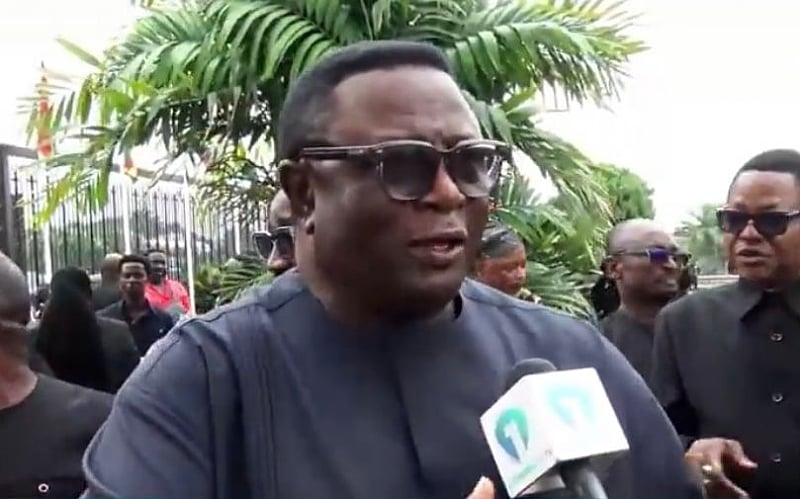The Presidential Envoy for Inter-Faith and Ecumenical Relations in Ghana, Elvis Afriyie Ankrah, has publicly voiced his exasperation over the deluge of doomsday prophecies inundating his office. He expressed a deep weariness with the constant stream of predictions centered on death and destruction, articulating a fervent hope for prophecies that instead inspire national development and progress. Mr. Ankrah’s plea reflects a growing concern within the Ghanaian government about the potential negative impact of such prophecies on public morale and national security. He emphasized his desire to receive prophecies that envision a prosperous and transformed Ghana, drawing parallels to successful Asian nations like Malaysia, Singapore, and South Korea. His frustration underscores a shift in focus towards prophecies that contribute positively to nation-building rather than those that stoke fear and anxiety.
The backdrop of Mr. Ankrah’s pronouncements is a recent directive from the Presidency, instructing all prophets in the country to formally submit prophecies concerning high-profile individuals or national security matters to the Office of Inter-Faith and Ecumenical Relations. This directive, issued and signed by Mr. Ankrah himself, aims to establish a more structured and responsible approach to handling prophetic pronouncements, particularly those with potentially significant national implications. The government seeks to ensure that such prophecies are carefully reviewed and addressed through appropriate channels, thereby mitigating any potential for misinterpretation, panic, or misuse. This move signifies the government’s attempt to strike a balance between respecting religious freedom and safeguarding national stability.
The timing of this directive is particularly noteworthy, following reports of prophecies allegedly foretelling the tragic helicopter crash on August 6th that claimed the lives of eight Ghanaians, including government officials, military personnel, and members of the National Democratic Congress (NDC). This incident likely served as a catalyst for the Presidency’s decision to formalize the process of receiving and reviewing prophecies. The potential for such predictions to fuel speculation, grief, and even accusations necessitates a more controlled approach. The government’s response underscores the delicate challenge of navigating the intersection of religious expression and public safety.
Mr. Ankrah’s outspoken frustration, coupled with the Presidency’s directive, reflects a broader debate within Ghana regarding the role and responsibility of religious leaders, especially those who claim prophetic gifts. The emphasis on positive and nation-building prophecies signals a desire to channel spiritual energy towards constructive purposes. The government’s call for structured reporting of sensitive prophecies is an attempt to manage the potential impact of pronouncements that could affect public order or national security. This move also underscores a broader trend of governments grappling with the implications of religious expression in the public sphere.
The request for prophecies that mirror the developmental trajectories of successful nations like Malaysia, Singapore, and South Korea reflects an aspiration for rapid economic growth and transformation within Ghana. By explicitly referencing these countries, the government is setting a benchmark for the kind of prophetic vision it hopes to encourage. This reflects a desire to leverage spiritual resources for national development and to align religious pronouncements with the country’s overall development goals. It also suggests a move towards evidence-based projections of future prosperity, mirroring the tangible progress achieved by these Asian nations.
Ultimately, the interplay between religious pronouncements and governance in Ghana highlights the complex relationship between faith and public life. The government’s efforts to manage the flow and content of prophecies demonstrate a need to balance religious freedom with the responsibility to maintain public order and national security. The call for prophecies of national progress underscores the potential for religious leaders to contribute positively to nation-building, while the weariness expressed by Mr. Ankrah highlights the challenges posed by prophecies focused on negativity and fear. This unfolding situation in Ghana offers a compelling case study of the ongoing negotiation between religious expression and the responsibilities of governance in the 21st century.


